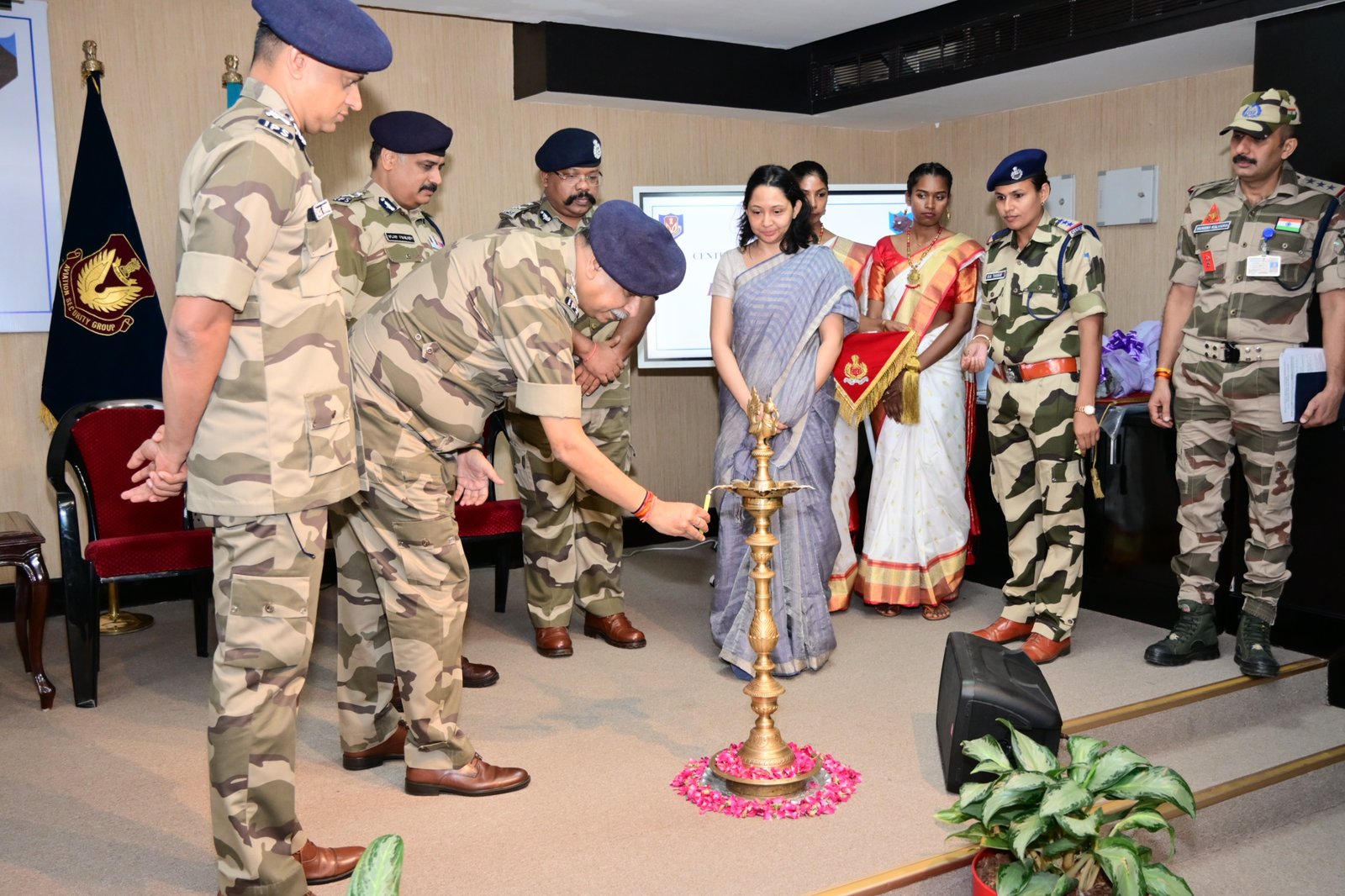New Delhi, news views post,
– In a landmark move aimed at transforming air travel security across India, the Central Industrial Security Force (CISF) hosted a high-level workshop bringing together key stakeholders in civil aviation and VIP security. The initiative seeks to enhance passenger safety while ensuring a more efficient and traveler-friendly airport experience.
The “Functional Workshop of the Airport Sector” was held at the CISF Airport Sector Headquarters on June 27, 2025. It witnessed participation from top CISF officers, security heads of 69 airports, and representatives from pivotal organizations including the Ministry of Civil Aviation (MoCA), Directorate General of Civil Aviation (DGCA), Bureau of Civil Aviation Security (BCAS), Airports Authority of India (AAI), Delhi Police, Bureau of Immigration (BOI), Special Protection Group (SPG), National Security Guard (NSG), Delhi International Airport Ltd. (DIAL), as well as major airlines like Air India Express and IndiGo.
What This Means for Passengers
✅ 1. Faster, Smarter Security for Tech-Savvy Travelers
- Expect quicker airport entry and reduced wait times with Biometric Airport Entry Passes (AEPs), facial recognition linked to CCTV, and vehicle identification via ANPR and FASTag integration.
- Digital SOPs (Standard Operating Procedures) will help in quicker, smarter responses to security concerns.
✅ 2. Smoother Experience for Frequent and First-Time Flyers
- Emphasis on integrated stakeholder training ensures a consistent, professional experience at all touchpoints.
- Plans to establish more Aviation Security Training Institutes (ASTIs) in Tier-2 cities aim to meet growing travel demand with uniform safety standards across the country.
✅ 3. Enhanced VIP and High-Risk Security Protocols
- Advanced anti-drone strategies, insider threat detection, and a layered protection approach will ensure heightened safety for dignitaries without disrupting normal airport operations.
✅ 4. Improved Grievance Redressal for Passengers
- A revamp of the passenger complaint redressal mechanism was a key highlight.
- All stakeholders agreed on a balanced approach to meet customer expectations without compromising security.
- Platforms like AirSewa will be used for real-time response and faster resolution of complaints.
✅ 5. Risk Assessment Enhanced with AI
- Integration of Artificial Intelligence and data analytics will help predict and assess security threats before they occur.
- This technology-driven approach means shorter queues, faster screening, and intelligent threat management.
Leaders Speak on a Collaborative and Secure Future
- Mr. Praveer Ranjan, Special DG, Airport Sector, CISF:
“Given the recent geopolitical developments, this workshop was timely. Continuous inter-agency dialogue is essential for upgrading aviation security.”
- Mr. Vijay Prakash, IG, Airport Sector-I, CISF:
“Field-level intelligence, seamless coordination, and tech integration are crucial to tackle evolving challenges effectively.”
- Mr. Jose Mohan, IG, Airport Sector-II, CISF:
“This workshop is not an end, but the beginning of a smarter, safer, and more collaborative aviation ecosystem.”
- Mr. Faiz Ahmad Kidwai, DG/DGCA (Guest of Honour):
“A safe and passenger-friendly environment is only possible through the collaboration of aviation regulators, operators, and security forces.”
Conclusion: A Future-Ready Aviation Security Framework
This major push by CISF marks a turning point in India’s aviation security strategy. It is not just about strengthening security, but also about delivering a seamless travel experience for millions of flyers. With tech-powered tools, inter-agency cooperation, and smarter protocols, Indian airports are set to become faster, safer, and friendlier than ever before.: Ajay Dahiya, Deputy Inspector General (INT), CISF




















